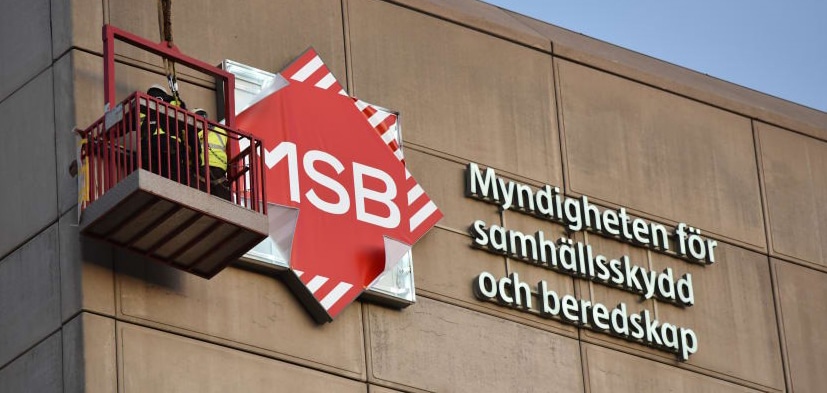Background: When the severity of COVID-19 became apparent, the Swedish Civil Contingencies Agency realised they required additional crisis management expertise to support staff in the response efforts and in doing so, enable staff to carry out their existing day-to-day duties.
Challenge: Support the Swedish Civil Contingencies Agency (MSB) with the delivery of a consistent and cohesive COVID-19 nationwide response. Facilitate smooth and effective collaboration between local, regional and national authorities as well as private actors.
Solution: New methodologies were implemented for key stakeholders to improve the immediate and long-term communication, decision-making, implementation and review processes during the ongoing Coronavirus pandemic.
Benefits: By bringing the right people together to tackle specific areas of response and using proven methodologies, authorities were able to share their experiences, mistakes and best practices, and collectively plan and execute the optimal response.
Customer: The Swedish Civil Contingencies Agency (MSB) is responsible for helping society prepare for major accidents, crises and the consequences of war. The work is led by a Director General appointed by the Swedish Government.We spoke to 4C Strategies Senior Consultants Linda Stensdotter Renman and Robin von Euler about their roles in the Swedish response to the Coronavirus pandemic.
Identifying and resolving the gaps
“I was initially assigned to the Swedish Civil Contingencies Agency to implement best practices, and organise, manage and facilitate smooth collaboration between authorities to ensure that any response was done according to proven methodologies,” says Linda. “As a former employee at MSB, I have a good understanding of the culture and ways of working, so I could get started straight away, without the typical onboarding procedures that can take time. I quickly began identifying any gaps in response between authorities and finding ways to resolve them.”
“I arrived not long after Linda,” says Robin. “It was obvious that this was going to be a long-term crisis. We were able to take a lot of pressure off the organisation by taking on duties and implementing processes that would ease their workload.”
MSB acts as a facilitator for the different authorities, supporting them to take the best decisions based on relevant information. They also provide support in the form of such things as providing tents for COVID-19 testing or allocating duty officers to districts, if they do not have the available resources.Building public sector resilience with local, national and international organisations
By helping public organisations increase their capabilities, they become more resilient, better at manging risks, and more prepared for handling incidents and crises. Ultimately, it is people, commerce and society as whole that benefit from this.
Defining a viable nationwide strategy
“A typical example of this was when MSB was approached by the 1177 Vårdguiden, (Swedish Healthcare Guide and Support Services) to help resolve a complex situation. Funeral directors were enquiring about how they should cope with an increased need for funeral services,” continues Linda. “We brought together experts from different authorities and ran meetings in order to define a viable strategy, which was documented, made available centrally, and communicated to all stakeholders. Rather than leaving local authorities to define their own strategies, we facilitated a national guideline for managing funerals.”
“We were also involved in assisting the responsible authorities with defining and prioritising the roles of critical employees within society,” explains Linda. “We worked closely with authorities to define and communicate roles that are essential to ‘keep things moving’ throughout the country within the four tier list of prioritised categories. These ranged from healthcare workers to supermarket employees. Neither me nor Robin made the list though!”
Implementing communication protocols
Much of the work done by Robin revolved around communication. In the early days of the pandemic, meetings were held twice weekly with central and regional actors. The information they provided was then compiled into a situation report, which was shared with all the relevant central and local authorities. The meetings are now held weekly, following the same protocol that was set out by Robin in the first few meetings.
“The situation reports are part of the collaborative communication strategy,” explains Robin. “The collaborative communication strategy covers everything from gathering and analysing information, to creating a baseline communication plan for all concerned authorities.”
Discover how you can build your Incident and Crisis Management capability with our advisory services.
Building trust through transparency
Two essential parts of this strategy involve creating guidelines that help build authority trust – both among authorities and with the public – and communicating what the general public has to do to feel and keep safe. This is particular important in Sweden – according to the ’Principle of Responsibility’ those that are responsible for something on a day-to-day basis, continue to have that responsibility in a crisis. The Principle of Responsibility applies equally to an authority as an individual.
“We know that mistakes will be made during a pandemic,” continues Robin. “This is new territory, and everybody is learning ‘on the job’. However, it’s important it doesn’t turn into a finger pointing exercise. If a mistake is made we bring the relevant authorities together, analyse the situation and once we know what happened, communicate it. Transparency is key if you want to build trust. This way you can put energy into learning from mistakes.”
Dealing with the new normal, day to day
One key goal for Linda and Robin has been ensuring the organisation – and the supporting networks around it – are prepared to deal with issues in the right order. This means making sure authorities can deal with the new normal and the difficulties that come with it as part of their day to day operations.
“The pandemic is long-term, and understandably people are beginning to tire of it,” explains Linda. “Communication is vital now to help keep the spread of Coronavirus at bay. We’ve worked hard to put the right crisis management processes and methodologies into place. This should ensure things run as ‘smoothly as possible’ now that the fall is here, the holiday season is over, and many people are going back to day to day life – albeit with alternative routines.”
“These processes will prove vital in ensuring that people don’t just fall back into their old ways of working,” adds Robin. “Staff have actively worked with methodologies that provide a more effective way of coordination, and that ultimately delivers results. People have experienced how effective inter-authority collaboration can be.”
The challenges ahead
“There are still challenging times ahead,” says Robin. “We expect to see local outbreaks, which will force authorities to take some tough decisions. Knowing they have the support network to do this will be important for them. Now is the time to plan for potential regional outbreaks and exercise the revised routines.”
“It’s important to acknowledge how well people have coped during this crisis. We are proud to have been a part of the national pandemic response and believe that through our contribution and that of those we’ve worked with, people will continue to have the energy and support they need to keep going for as long as necessary.”
Linda Stensdotter Renman
Linda is a Senior Consultant at 4C Strategies. She has spent the past three years advising and supporting organisations in the public and private sector with crisis management. Prior to this, Linda spent seven years at the Swedish Civil Contingencies Agency, MSB, working with training and coordination, among other things.
Robin von Euler
Robin is a Senior Consultant specialising in strategic, integrated and operative crisis communication. Before joining 4C Strategies in 2018, Robin worked with communication and training at local authorities and prior to that he was employed by the Swedish military for 20 years.






